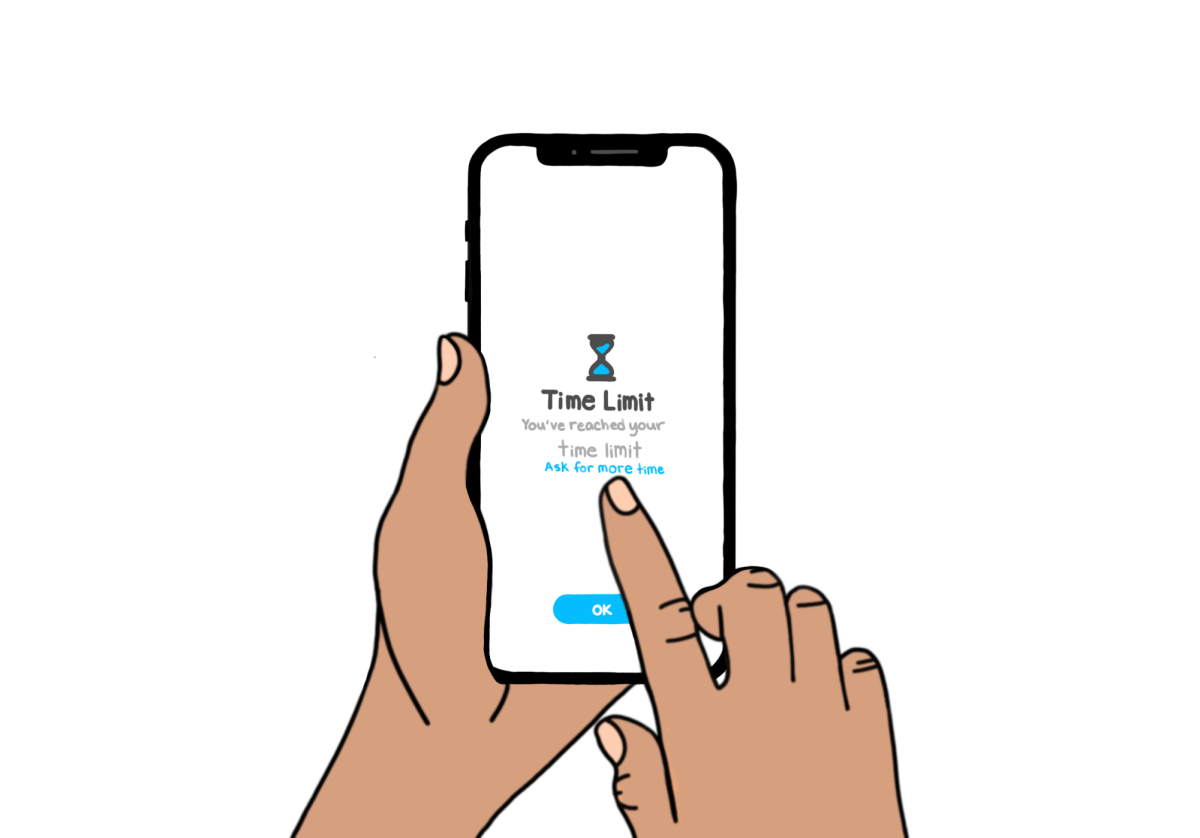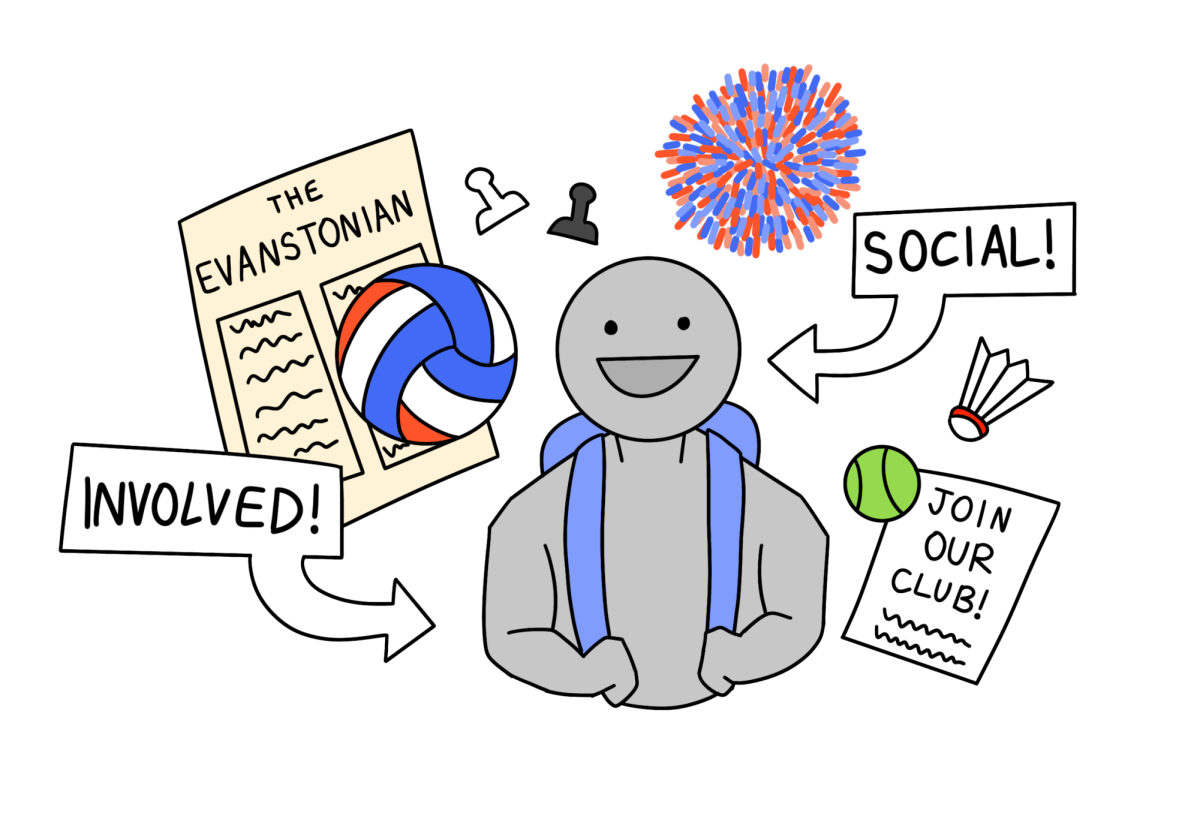It’s December of 2020. The Pandemic is the last thing on my mind; my parents aren’t home, and my brother and I have the house to ourselves. Online assignments sit in my Google Classroom, but the Nintendo Switch sitting in my hand calls to me more. 13-year-old me is giddy with joy. The Switch is normally off-limits on school nights, but you wouldn’t be able to deduce that fact from the sight of my brother and I passing the gaming console back and forth between games of Spellbreak for what seemed like hours. I would later find out it was indeed multiple hours – an impossible sight considering the console had a time limit of 30 minutes. But in that moment, no time limit had any control over me. Rather, I had flipped the script on my overbearing parents: I knew the screen time passcode.
More importantly, I knew that during that afternoon I would not stop until the Switch was either drained of battery or my parents arrived home. That feeling of control, of knowing no one, no pre-set limitation could stop me from playing The Legend of Zelda or Super Smash Bros if I so chose – goodness me, it was bliss. Game after game after game…until, at last, the rumble of the opening garage jostled me out of the ethereal haze I had found myself in. Suddenly, the bliss was gone, replaced by a mad scramble to turn off and return the device to its original position. As the door opened, I sat tensed up in front of my school-issued iPad, completing the last of the straggling assignments due before winter break. The Nintendo Switch had been hastily placed back in its charging station – a detail I hoped my parents wouldn’t notice. I knew the next morning that I had been too obvious, however, as the screen time passcode was already changed.
I would become all too familiar with this endless cycle up until my 18th birthday just a few months ago. Each reset of a screen time passcode or wifi blocker was another battle in the timeless war I fought against the tracking apps and limitations. Growing up, every single electronic device had restrictions. Wifi usage could be tracked and set to automatically block certain websites after a certain amount of time was spent on them. Apple’s screen time feature was set up, ready to go on my 12th birthday when I first got my own phone. I had 1 hour of screen time a day: 30 minutes for games, and 30 for social networking. Gaming consoles were subjects of screen time blockage as well; controllers were often hidden in unfindable places until the weekends, where 1 hour was usually the general allowance. If it had a screen, it was most likely under the protection of my parents’ watchful eyes. Now, I am not naive enough to claim I had it worse than many of my peers of the same age. Indeed, as time went on, the limits fluctuated, often to my benefit. I reasoned with my parents, bargaining with the countless arguments I constructed in order to have them lay off just a bit more on each restriction. But despite some small victories, the system as a whole stayed in place. And until very recently, I had no idea what it was like to have control over my own screen time.
Yet, after all of this, I am not here to complain about my past woes with such constraints or lament about the heated war of words I had seemingly hundreds of times with my parents over the matter. No, I am not as worried about my past with screen time as I am about my relationship with screens now. I have found that, as an uncle of an obscure superhero once said, with great power comes great responsibility. And up until recently, the power has fallen undisputedly into my hands – without any framework or capacity for responsibility on my end. In simple terms, I haven’t been trained to limit my own screen usage. Rather, like a kid who isn’t allowed to eat any candy except for on Halloween, I’ve taken advantage of this day and gotten the craziest sugar rush possible. Except it isn’t just one day – it’s every day, for the rest of my life. My daily screen time usage has been the highest it has ever been, and I can actively feel my attention span melting away, slowly but surely. There is always something that needs to be done on my phone, something to occupy my time that I could be using to do something more productive. Even as I write this article, I’ve found myself having to fight the urge to pick up my phone every 3 seconds. I know – for a fact – that I had not struggled with this specific brand of addiction for the majority of my life. Because, despite the annoyances of screen time limitations, it meant one thing was for sure: I wouldn’t have to worry about controlling myself. The limits and trackers did that for me. Now, with complete digital freedom, I fear the consequences of having no restrictions without having the capability to moderate myself.
I am not saying in the slightest that parents should not limit their children’s screen time and what they can access. Nowadays, it seems like kids are handed iPads and phones straight out of the womb. I didn’t even have my own phone until I was a teenager, and navigating the correct way to engage in that ownership has – clearly – proven to be an immense challenge. I don’t want to imagine the ramifications of allowing a five-year-old to have unlimited access to the internet, though I know that is already a reality in many cases. However, kids don’t need to be shielded from the online world as much as they need to be taught how to traverse it properly – and this includes learning how to manage their own screen time. I am incredibly grateful that my parents didn’t let me have a phone until the age that I did, but because of that decision and many others, I now need to teach myself – at 18 – how to strike a balance between healthy usage and addiction.
To say this dilemma is completely and wholly the fault of myself or my parents is unfair, however. I am well aware that we, as a human race, have entered an era where attention is the greatest resource there is. So many facets of the online world reach for our attention: social media, news, and games are only a few. The average human attention span is a minuscule 8 seconds, steadily decreasing. Who knows how long those five-year-old iPad kids will be able to focus in 10 years? I recognize that this is an issue that stems deeper than just battling tracking apps and time limits. As MSNBC host Chris Hayes wrote in his New York Times Opinion piece, “The problem we face is existential and spiritual, not situational,” referring to our relationships with our devices and the digital world. In no way do I solely blame my screen time limitations on my current struggle to control my usage in a way that is healthy in my eyes. However, as we trudge deeper and deeper into the bog that is the attention economy, I wonder if applying screen time limitations is only a bandaid that, when inevitably ripped off, causes those protected by it to be thrust into the wild, unprepared to defend themselves like an animal raised in a zoo thrust into its natural habitat. All I know is that there is undoubtedly a balance that must be found as kids grow up more and more intertwined with screens. Unfortunately, I cannot say how that balance can be found. I’m still looking for it myself.







